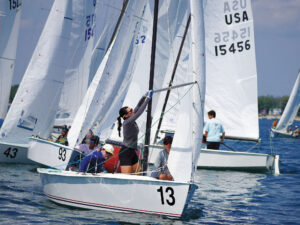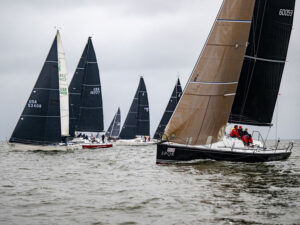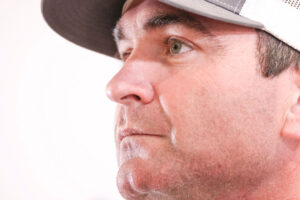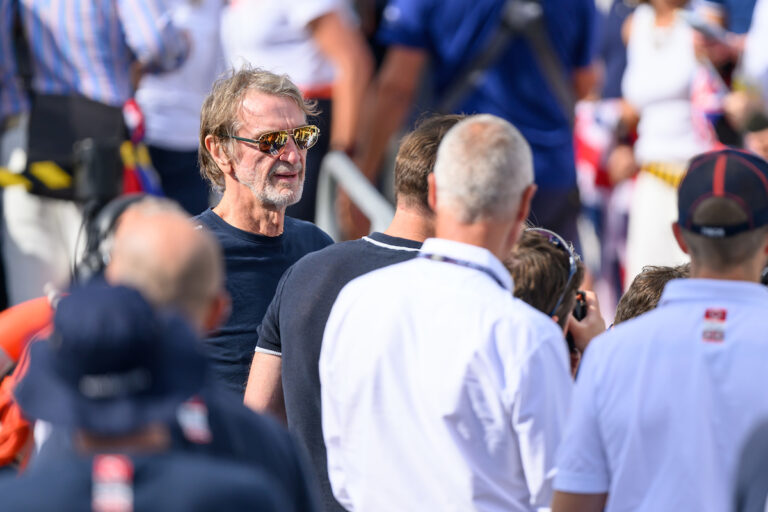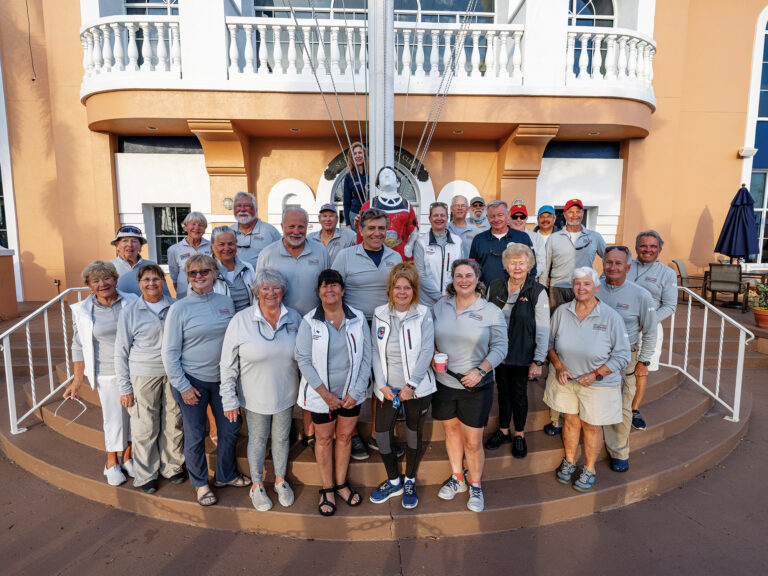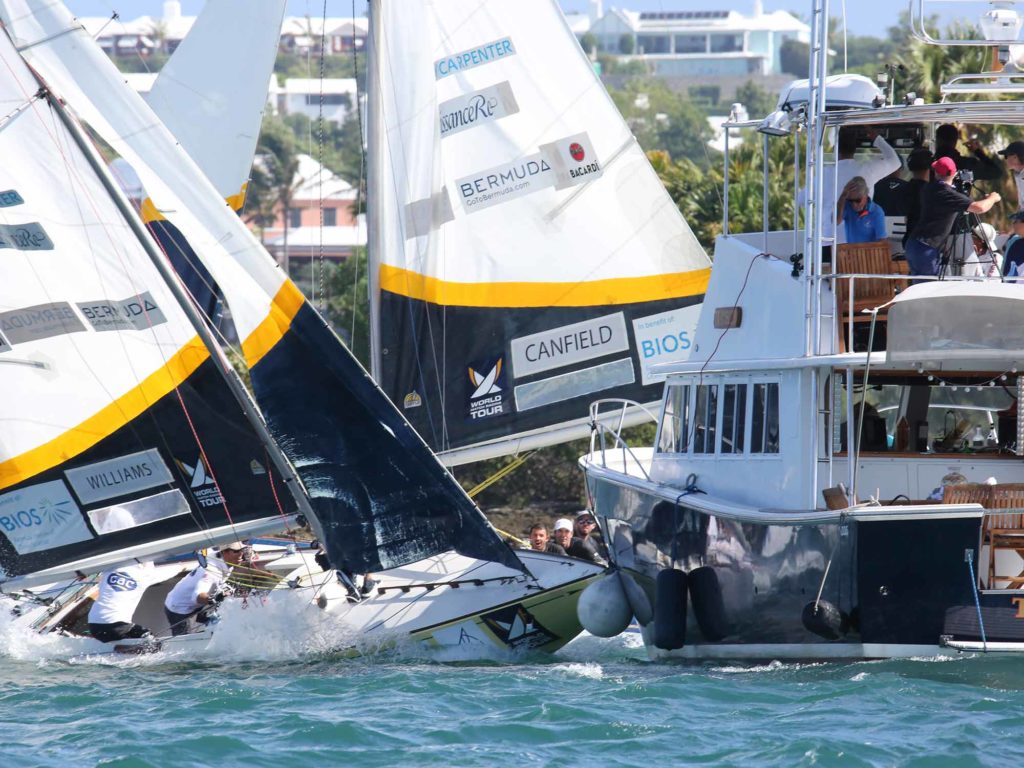
Taylor Canfield and crew won three of the four races in winds ranging from 12 to 20 knots on Hamilton Harbour. They showed grit and determination in clawing back from deficits and a killer’s instinct in laying penalties on Williams and crew. They also showed great boatspeed when free and clear on the racecourse.
For Canfield the victory is his third at the Bermuda Gold Cup (2012, ’18) and second Open Match Racing World Championship (2013).
“It’s unbelievable. I can’t thank my team enough,” said Canfield. “I put us in a lot of tough spots this week and they got us out of almost every one of them. Thanks to Bermuda for getting us here. We’re excited to be out racing again, and to come away with a win is unbelievable. We’re thrilled.”
Canfield and crew accepted the King Edward VII Gold Cup, the sterling silver World Match Tour Championship trophy and the $30,000 winner’s check of the $100,000 prize purse.
Williams and Team GAC Pindar – Christian Kamp, Gerry Mitchell and Richard Sydenham – placed second and won $15,000. Williams, the two-time Gold Cup champion and six-time Open Worlds champion took the loss in stride, but was rueful of the umpire’s calls, whose decisions had an impact on the outcome.
“It’s a lot about styles,” Williams said. “We try to keep the umpires out of the game and (Canfield) likes to bring them into it, and it worked for him today.”
New Zealander Phil Robertson and his China One Ningbo crew – Bradley Farrand, Peter Nicholas, Johanna Thiringer and James Williamson – placed third overall and earned $12,000 after defeating Jeppe Borch’s Borch Racing Team from Denmark in the Petite Final.
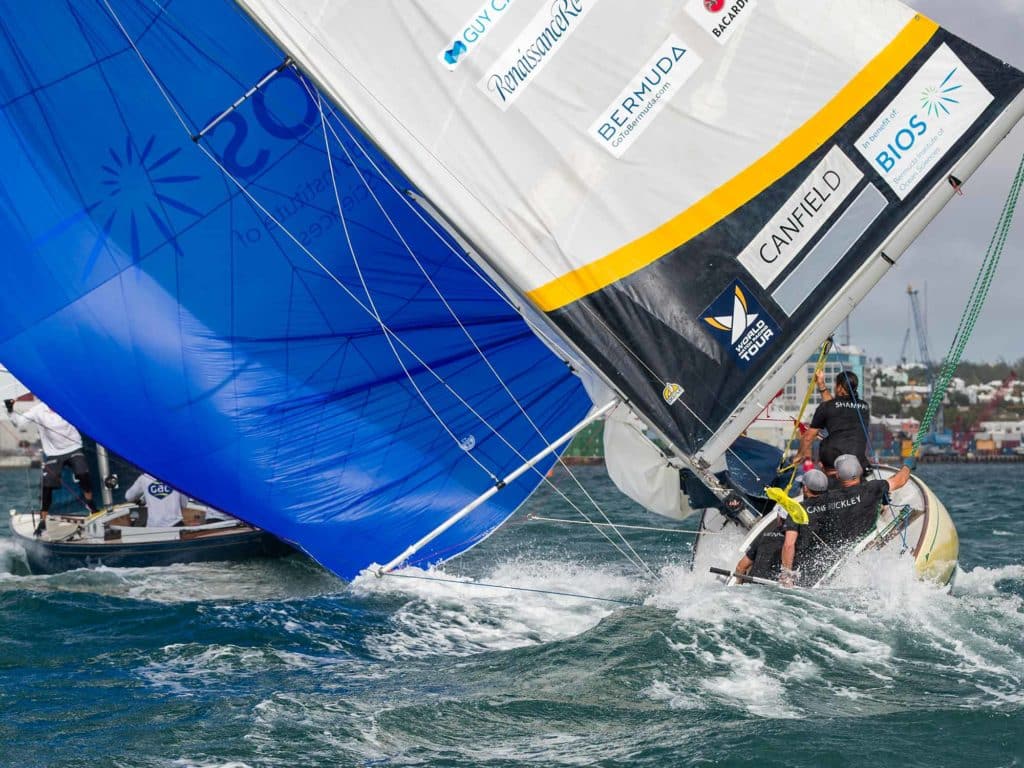
At the awards ceremony after racing, dignitaries such as the Governor of Bermuda, John Rankin, Royal Bermuda Yacht Club Commodore David Benevides, the President and CEO of the Bermuda Institute of Ocean Sciences, Dr. William P. Curry, and the CEO of Bermuda Tourism, Glenn Jones, all spoke of how Bermuda has worked to contain and minimize the coronavirus pandemic. Everyone associated with the regatta was tested multiple times while on the island, and not one person failed the tests.
“We were able to prove to the world that we can host a professional sporting event safely and responsibly without sacrificing the action on the water,” said Jones.
They were on hand to witness the awarding of the Jordy Walker Trophy, recognizing the most improved young match race sailor at the Bermuda Gold Cup, to 23-year-old Borch. Borch’s crew, including August de la Cour, Seabastian Pieters and Nikolai Rasmussen, placed fourth overall and won $11,000 in their first Grade 1 match racing regatta.
RELATED: Bermuda Gold Cup Goes Coed
The Wedgwood Heritage Trophy, awarded in honor of Lord Piers Wedgwood, is presented to the sailor or support staff who best represents the traditional values and history of sailing. This year the trophy was presented to Tim Patton, who’s barge is a mainstay of the Bermuda Gold Cup. Asked for comment Patton replied, “When I’m done here, I’m taking the rest of the day off.”
From Williams’s perspective, the key point in the regatta was the pre-start of Race 2. Williams and Canfield had worked their way into the spectator boat crowd outside the pin end of the start line. Canfield was hounding Williams and got a penalty on him.
Canfield peeled off for a bit and sailed back toward the line and Williams began to follow. Canfield then decided to go back for another try at a penalty. Williams, on port, attempted to wipe Canfield by sailing below the commentary boat. Canfield, holding starboard, appeared to try and put his bow between the commentary boat and Williams. But his bow seemed to hit Williams’s at about the traveler and spun Williams bow into the commentary boat.
Damage was done to the bow of both boats as well as the commentary boat. Williams, who’d lost the first race, saw that as the turning point in the series. Not only did he receive a second penalty from the umpires, but he later was assessed a penalty of .75 points, which put him down 2-(-.75) after two races. That meant that he would have to win four consecutive races in order to win the championship.
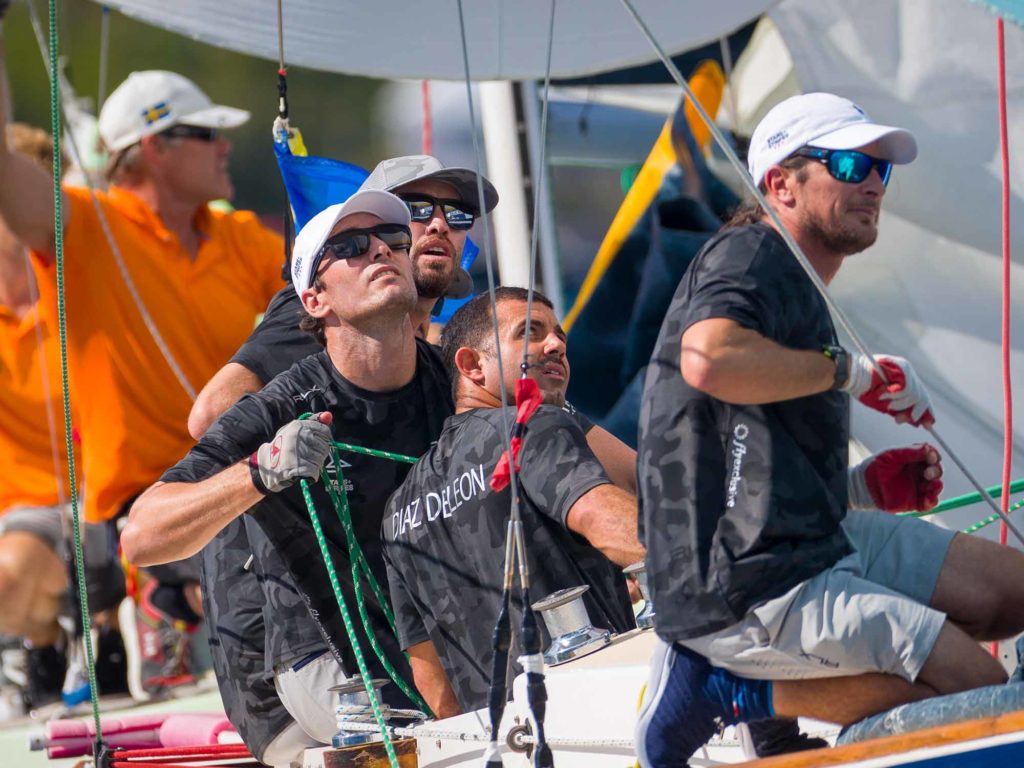
“The big collision in Race 2 was the critical moment,” said Williams. “Not only was it a race win-loss on the penalty call, but also a lot of points on the collision. It’s essentially a 4-point delta. It was super critical. We’re not happy with it but you have to suck these things up.”
“The guys onboard were telling me to back off. I saw an opportunity and went for it,” said Canfield. “I hate hitting boats, but felt like there was no way to avoid it. He got another penalty and a three-quarter point penalty. Everyone makes mistakes and this time he made the mistake.”
The King Edward VII Gold Cup, awarded to the winner of the Bermuda Gold Cup, is the oldest trophy in the world for competition involving one-design yachts. First presented in 1907 by King Edward VII at the Tri-Centenary Regatta at Jamestown, Va., honoring the 300th anniversary of the first permanent colony in America, the trophy is the only King’s Cup ever to be offered for competition in the United States which could be won outright.
The Bermuda Gold Cup, an event of the World Match Racing Tour, is presented by Argo Group in benefit of the Bermuda Institute of Ocean Sciences (BIOS), an independent US non-profit scientific research and educational organization based in Bermuda. For over 100 years BIOS-based researchers and visiting scientists have worked to explore the ocean and address important local and global environmental issues, including climate change, coral reef resilience, and environmental monitoring. As a Bermuda registered charity, BIOS is committed to providing local students with educational programs that build a foundation for an appreciation of Bermuda’s marine environment, as well as future careers in science, technology, engineering and mathematics (STEM) subjects. The Bermuda Gold Cup is proudly presented by the Bermuda Tourism Authority.

